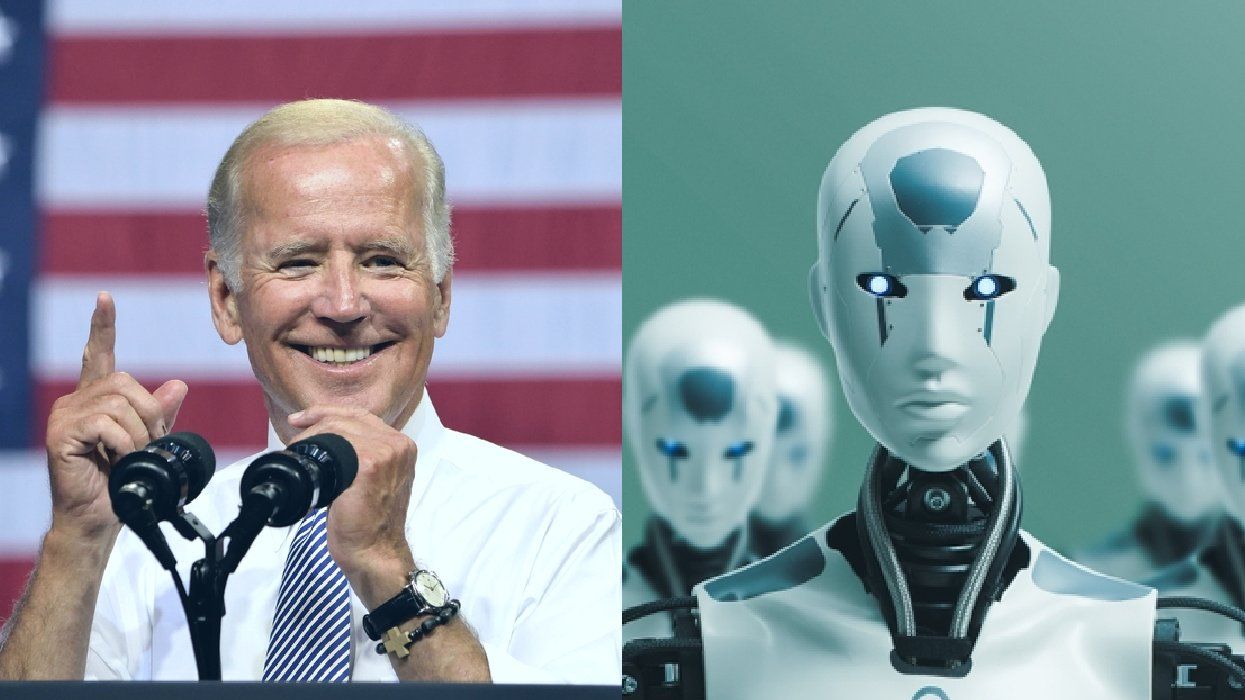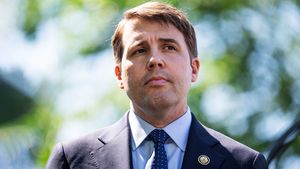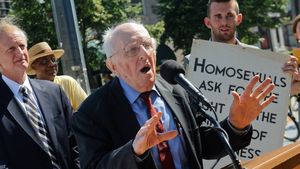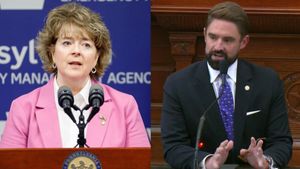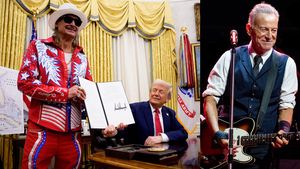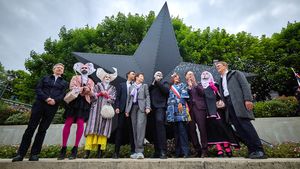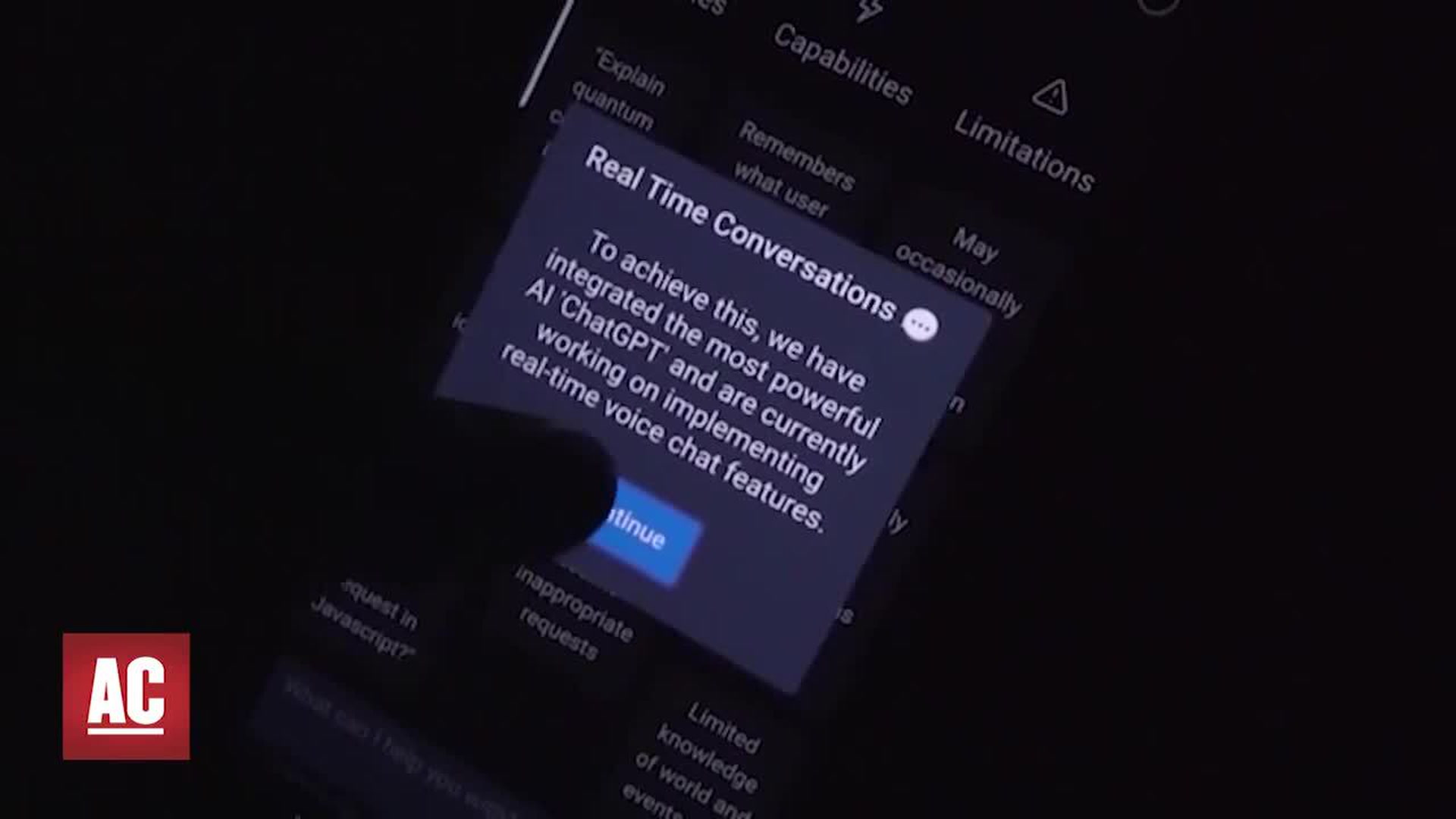
Video Source: Advocate Channel
Washington (CNN) — The White House rolled out a sweeping executive order Monday that aims to monitor and regulate the risks of artificial intelligence while also harnessing its potential, marking the latest effort to address a rapidly evolving technology that has sparked concern among world leaders.
Top White House officials argue the executive order is the most significant action on artificial intelligence taken by any government as leaders around the world race to address the risks posed by the quickly changing technology.
“Given the pace of this technology, we can’t move in normal government or private-sector pace, we have to move fast, really fast – ideally faster than the technology itself,” White House chief of staff Jeff Zients said, recounting President Joe Biden’s directive to his team to make AI a top priority. “You have to continue to be proactive, anticipate where things are headed, continue to act fast and pull every lever we can.”
The executive order, which Biden unveiled at an event Monday, is sweeping in scope. It will require developers of powerful AI systems to share results of their safety tests with the federal government before they are released to the public.
If an AI model being developed poses national security, economic, or health risks, the order will compel companies to notify the federal government under the Defense Production Act.
The action will also ease immigration barriers for workers skilled in critical areas of AI to study and stay in the US; establish standards to prevent AI production of dangerous biological materials; and develop best practices to minimize the risk of AI displacing human workers.
The order aims to prevent AI-related fraud by directing the Commerce Department to develop guidance for watermarking AI-generated content.
And it will spell out government use of AI, including standards for safety but also measures to help agencies acquire new technology that could increase efficiency or cut costs.
Biden called the order the “most significant action any government anywhere in the world has ever taken on AI safety, security and trust.”
“One thing is clear, to realize the promise of AI and avoid the risk, we need to govern this technology. There’s no way around it in my view. It must be governed,” Biden said at Monday’s event.
The executive order builds off voluntary commitments made earlier this year by 15 tech companies, including Microsoft and Google, to allow outside testing of their AI systems before public release and to develop ways to clearly identify AI-generated content.
The White House last year also rolled out an “AI Bill of Rights,” offering companies guidelines aimed at protecting consumers using automated systems, though that guidance was nonbinding.
While AI systems have been around for decades, the recent explosion of generative AI tools such as ChatGPT thrust the technology front and center for consumers, businesses and lawmakers, with some industry leaders even warning of the “risk of extinction of AI.”
“We must be clear-eyed and vigilant about the threats … of emerging technologies that can pose – don’t have to, but can pose – to our democracy and our values,” Biden said after meeting with tech executives at the White House in July.
On Thursday, the president met with his team, including Zients, White House deputy chief of Staff Bruce Reed and White House adviser for AI Ben Buchanan, for more than an hour to review the final executive order, officials said. He pressed his advisers on how the plans would be implemented and how the administration would clearly explain why it matters to Americans.
“We want to demystify AI so that everyone knows what it can do, what to worry about and what we’re doing about it,” Reed, who has managed the AI policy process at the White House, told CNN in an interview. “This is the next step in an aggressive strategy to do everything in our power.”
Ahead of the executive order, the president – who has experimented with ChatGPT in the Oval Office – spent months consulting with world leaders, academics, experts, civil society leaders, tech executives and his science and technology advisers. He’s heard about how AI could potentially advance health care or improve modeling for extreme weather while also listening to experts who’ve expressed concern about Big Tech and how AI has had detrimental effects on social media platforms.
“He has spent much of the year seeing for himself what AI can do, for good and for ill,” Reed said.
Biden said during Monday’s meeting that he watched deep-fake videos of himself, saying, “I’ve watched one of me a couple of times. I said, ‘When the hell did I say that?’”
The officials said the president has been intent on ensuring safeguards are in place to protect consumers, pointing to the use of voice cloning by scam artists to extract money or personal information from individuals.
The president has also been focused on national security concerns as officials seek to “understand the implications for national security for ourselves and for our allies” and to ensure that “AI doesn’t get abused by those bad actors in the world who don’t have our interests in mind,” Zients said.
The executive order announcement comes just days before Vice President Kamala Harris is set to attend an artificial intelligence summit hosted by British Prime Minister Rishi Sunak at Bletchley Park, which formerly served as headquarters for the Allied forces’ codebreaking program during World War II.
Harris on Wednesday is also slated to deliver what the administration is billing as “a major speech” outlining the Biden administration’s vision for artificial intelligence, in which she will lay out the case that nations must “address the full spectrum of risk, from potentially catastrophic risks to societal harms that are already happening such [as] bias, discrimination and the proliferation of misinformation,” a White House official said Monday.
Harris in her remarks will call for the future of AI to be based in the public interest while touting the executive order and other steps taken by the US as “a model for global action,” the official said. She is also expected to lay out efforts to “put the people’s interests first” in the use of AI by “using her platform to fight for people – workers, consumer rights, privacy rights, and others,” the official said.
The European Union could soon approve its own regulations to govern the use of artificial intelligence, and the US has been working with allies, including through the G7 and UN, to develop an international code of conduct to promote safe and trustworthy AI, officials said.
In the US, Congress has been working toward legislation to address artificial intelligence. Senate Majority Leader Chuck Schumer of New York is holding a series of “AI Insight Forums” – including one last week – to discuss issues that regulations would seek to address. Those issues include how to protect workers, national security and copyright and to defend against “doomsday scenarios.”
“We’re going to be working with both parties in Congress to pass whatever legislation we need to realize the promise and the avoid the risks of AI,” Reed said, noting the president will also push for bipartisan data privacy legislation. “AI is advancing incredibly quickly and we will do everything we can to do the same.”
This story has been updated with additional details.
CNN’s Donald Judd, Nikki Carvajal and Jack Forrest contributed to this report.
The-CNN-Wire
™ & © 2023 Cable News Network, Inc., a Warner Bros. Discovery Company. All rights reserved.
- Microsoft Under Fire For AI Obituary That Calls Deceased NBA Player 'Useless' ›
- Zelda Williams Slams 'Disturbing' AI Content With Late Father Robin Williams ›
- SAG-AFTRA Praises Proposed Legislation That Would Protect Actors From AI Replicas ›
- Striking Actors Horrified by Studios' Dystopian AI Proposals ›
- How Microsoft Is Making a Mess of the News After Replacing Staff With AI ›
- How Has OpenAI Gone Through Three CEOs in Just Three Days? ›
- Sam Altman Reinstated as OpenAI CEO After Employees Protest ›
